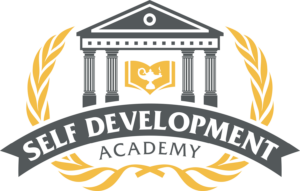While the benchmarks for a good education often include good grades and test scores, we at Self Development Academy take the objective of educating much further. As a charter school, we set our own performance expectations above and beyond the public school system’s standards. We identify the genius in each of our students, and then nurture and grow it through curiosity and critical thinking.
You can teach anyone to memorize. Songs, rhymes, and catchy lyrics are great for that. But how do you teach someone to internalize? Critical thinking is key.
Ask Questions.
You don’t know what you don’t know. But the first step to learning is identifying what you want to know. Magic tricks are a great way to pique interest. If you show your class a levitating ping pong ball, the students want to know how you did it (and how to do it themselves to impress their friends)! A lesson on Bernoulli’s Principle that may have been unexciting before suddenly becomes enthralling.
Once students understand the basics of a concept, asking questions about the bigger picture or the smaller details helps them critically think about what they’ve learned and deepen their understanding. And as the parent or teacher, it’s OK for you to say you don’t know the answers or to add your own questions to theirs; the pursuit of knowledge together makes learning fun and meaningful.
Test Theories.
While we teach and employ the scientific method in science classes, we also test theories in every subject. If a third grader says she loves Claude Monet’s Water Lilies series, we could study works by Auguste Renoir to see if she’s drawn to the Impressionist style. And we could introduce her to Vincent Van Gogh’s water lilies to decide if it’s the subject matter that attracts her most.
Math is another subject perfect for testing theories. Before you teach students that all angles in a triangle add up to 180 degrees, challenge them to use their protractor to find a triangle in their house with the highest number of degrees for total internal angles. As they come to the 180 degree total on their own several times, the conclusion will stick with them.
Replicate.
After studying a subject, find ways to actively understand and it will help the information sink in. For example, write prose in the style of an author you’ve just read, or create a podcast series as if to report on the seven main Civil War battles. Continuing the Water Lilies example, once a student appreciates the differences between Monet and Renoir or Impressionist and Post-Impressionist paintings, she can try her hand at mimicking and recreating them.
When the subject matter comes off the pages of the textbook or test and into practice, it comes alive.
If you are looking for a charter school that teaches and encourages critical thinking, contact us at (480) 641-2640 or (602) 274-1910 to get more information about our K-8 nationally awarded charter school of excellence with an advanced learning curriculum. In addition to online learning, we have campuses in Phoenix, Glendale, Gilbert, and Mesa.
